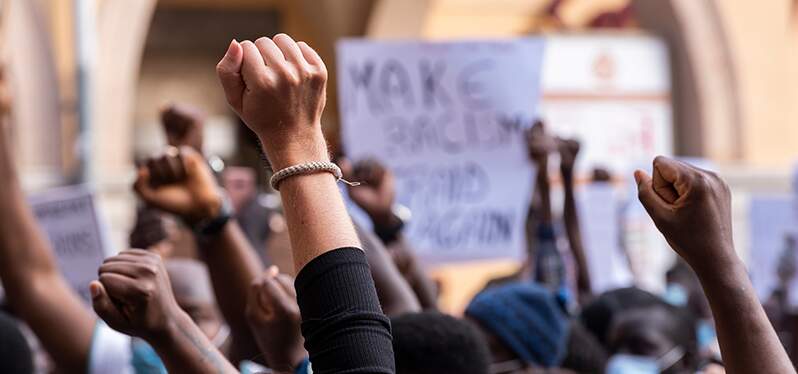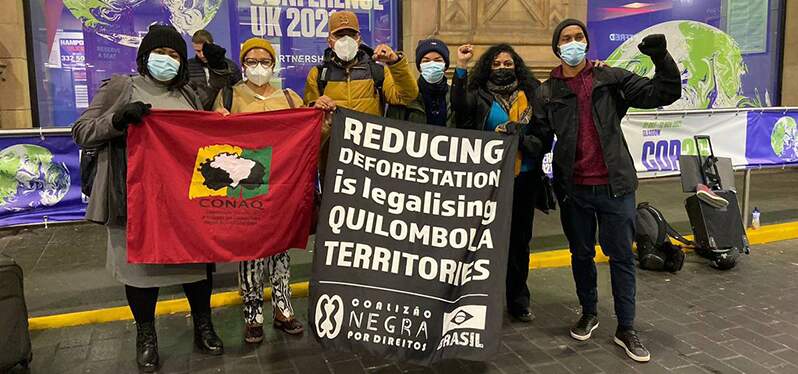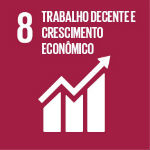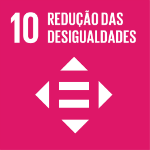Posted in: 11/19/2021
The Black Awareness Day, instituted in 2011 in the national calendar, 10 years ago, continues to launch debates, yet timid, about the fight against racism in Brazil. In ten years of a national holiday in honor of the quilombola leader Zumbi dos Palmares, the pursuit for a more egalitarian society is not over.
Both in Brazil and worldwide, black movements – such as Black Lives Matter, Afropunk, Black Coalition for Rights, among others – have been demanding social, corporate, and constitutional changes that ensure justice for racism-related crimes, more security for black men and women, and especially the right to equality in all environments, whether inside companies, at events, in the media, among others.
In October this year, the Federal Supreme Court (STF) decided, by an 8-1 vote, that the crime of racial slurs equates to the crime of racism and is imprescriptible, that is, it can be judged regardless of the time it was committed. This gives victims the opportunity to report crimes they have suffered at any time.
The Atlas of Violence 2021, based on the year 2019, produced by the Applied Economic Research Institute (IPEA) and the Brazilian Public Security Forum (FBSP), in partnership with the Jones dos Santos Neves Institute (IJSN), points out that the chance of a black person being murdered is 2 times higher than a non-black person. When the murder figures are analyzed in more detail, it can be seen that 77% of the victims are black people.
The study reinforces that “if we also consider the absolute numbers of the same period, there was an increase of 1.6% of homicides among black men/women between 2009 and 2019, going from 33,929 victims to 34,446 in the last year, and among non-blacks, on the other hand, there was a 33% reduction in the absolute number of victims, going from 15,249 deaths in 2009 to 10,217 in 2019.”
At the international level, one year and six months after the George Floyd case, in which a black man was killed by police brutality, even after a policeman was sentenced to 22 years in prison for the crime, youngsters do not feel safe. After all, the quest for justice has begun as they struggle not to be killed, because sentence is a form of punishment when a crime, such as murder, is committed. There is a lack of more effective measures to encourage the fight against racism in the country.

When contrasting the national violence data with the unemployment rate data, it is notable that the black population is also the most affected in the country. Black men and women represent 72.9% of unemployed people in Brazil, out of a total of 13.9 million in this situation, according to data from the Continuous National Household Sample Survey (Pnad Contínua) of the Brazilian Institute of Geography and Statistics (IBGE), which analyzed the last quarter of 2020. For black women, this figure is even more alarming: the unemployment rate among them is 9.2%, while for white men it is 5.6%.
In trying to reduce this inequality, the United Nations (UN) created, among its Sustainable Development Goals, the SDG10 – Reduction of Inequalities, which is focused on the direct and indirect reduction of inequalities. To achieve this goal, Brazil works with the offer of professional training and technical courses. But companies can also do their part.
As a corporation, what can you do?
Emerging in 2005, the Environmental, Social, and Corporate Governance, known today as ESG has helped in the process of environmental, social, and corporate awareness in companies and can – and must – collaborate with the fight against racism.
When the subject is racial inequality and racism, companies have been moving to create committees and squads, aiming to sensitize their employees, collaborators, and partners through endomarketing campaigns, lectures, and partnerships. Thus, creating a more egalitarian and favorable environment for hiring and more diverse actions within the company. One of these actions is the Pact of Racial Equality, which aims to adopt affirmative action and social investments to make companies agents of social transformation.
Companies such as EmpregueAfro, Pretos no Job and Afro Presença are examples that have collaborated so that various corporations focus their hiring on black people and combating structural racism within their work environments, with a more diverse and conscious team, through the insertion and advancement of black people in the labor market, reducing racial inequalities in the economic, cultural, political and social spheres, through a more active participation in society.
When it comes to advancement, the number of black people in management positions is 29%. In leadership positions, the rate drops to 14%, but the numbers are even lower when the percentage of Afro-Brazilians in the board of directors is analyzed: only 6%, according to the Pact of Promotion of Racial Equality.
While companies demand a high level of education for their employees, the number of black people in the country’s universities is still lower compared to non-black people.

A study made by the Insper economists Sergio Firpo, Michael França, and Alysson Portella points out that the equality of black and white students in Brazilian universities will only happen in a little more than a decade. This is because, the economic crisis that began in 2014, has still reflected in the insertion of black men and women in higher education courses.
Opposing to the access to education, the Brazilian legislature, in 2022, will re-examine the entire racial quota system. According to Paulo Paim, the senator who presented the revision project, the quota policy may no longer be necessary if the numbers of black and multiracial students inside the federal universities reach the proportion inside the federal unit. This may impact negatively when the data on access to education is analyzed in the coming years.
Aiming at the impact that education has for insertion in the job market, companies, such as the digital bank Nubank, have created projects in partnership with programming schools, such as AfroPhyton, to teach and improve the knowledge of young people, especially blacks. The objective is to insert these people in the market through the knowledge passed on by the company itself. Projects like this aim to bring diversity and inclusion to the company’s own talent bank.
Apple is one of the companies that have invested in education. In early 2021, the company invested about R$530 million in a technology education center for black men and women in Atlanta, in the United States.
As a corporation, the main change, and the most urgent one, is the inclusion of a more diverse, more black collaborating body that contradicts the indicated statistics. Henceforth, the changes will be effective and will begin to impact an entire society. If racism is structural, so must be the change.
Get to know Synergia’s Antiracism Guide
Synergia, in line with the Sustainable Development Goals proposed by the UN, supports and collaborates with all measures to achieve the goals of a better planet for all, including the Reduction of Inequalities (SDG 10).
The Black Awareness Day is part of the internal and external actions of the company, which developed the Antiracism Guide to: help fight racism, encourage debate on important issues – such as representativeness, proportionality, and equity – and collaborate with an antiracist society.

The Antiracist Guide contributes to the dissemination of knowledge about what racism is, what the issues faced by the black population in Brazil are and guides the reader on how it is possible to be antiracist, even with the difficulties imposed by a country that maintains strong structural racism.
There are 79 pages of content, created with a lot of research, dedication, and hope that this Guide can be, at least, a small step towards achieving a society with more opportunities for the black population, based on equity, representation, and no prejudice.


Sign up and receive our news.